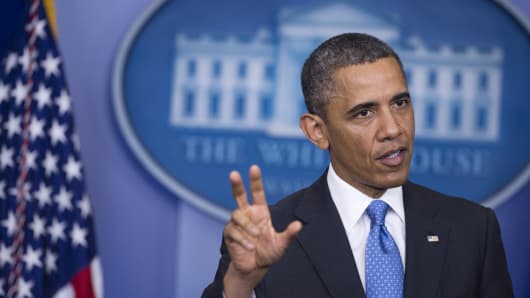The exchanges and the federal hub are being built from scratch, but a big hurdle to making the system work seamlessly is that they also have to connect with older federal and state Medicaid database systems.
"We have to talk to a lot of systems that are legacy systems, that are older technologies, and some of the new technologies are faster," said Benush Venugopal of Deloitte, who is spearheading the build out of Washington state's exchange.
Much of the early testing has involved trying to upgrade the legacy systems, in a simulation environment called a sand box, without bogging down the build out of the new infrastructure, Venugopal said. With each test, the sand box simulation has improved.
"We still need to do the end-to-end testing with those systems," he said. "It will be another seven weeks before we complete that process."
Jennifer Tolbert, director of State Health Reform at Kaiser Family Foundation, was encouraged to learn Washington State's first wave of testing had gone well.
"I would say that most of the states that are building their own exchanges are making important progress toward getting those exchanges up and ready," she said.
While Department of Health and Human Services officials have said they are also making progress on building the federal state exchanges, they have offered few details publicly.
"We know a little bit less about how progress is proceeding at the federal level," Tolbert said.
Thirty-three states opted for federally built exchanges—more than the Obama administration had anticipated. Last month, HHS announced it would not complete one portion of business portal on those exchanges until 2015. It delayed the Small Business Health Options Program known as SHOP for a year, leaving small businesses with only one plan to choose from on the federal exchanges.
(Read More: For Small Business, Learning Obamacare Math)
States like Washington, seem to be making more progress. Small businesses in the Evergreen State could see a variety of new plan offerings in 2014. UnitedHealth was one of seven carriers that expressed an interest in the small business program.
"We're very excited about what we'll be able to offer for small employers," said Onizuka, the exchange's CEO.
With more than one million uninsured, the state expects roughly 280,000 people will enroll for coverage by the end of 2014. Molina Healthcare was one of 13 carriers that expressed interest in offering exchange plans in the individual market.
The state will begin its outreach and marketing campaign later this summer. That could result in an early surge in enrollment.
The stakes are high for the exchanges, and for the tech firms building them to make sure the system holds up during peak demand.
"We obviously expect a lot of volume when open enrollment starts," explained Deloitte's Venugopal. "And as we're testing it, we're throwing everything at it, to see how the system behaves."
"Everybody here is working really hard to make sure that consumer experience is a positive one," said Onizuka. Though, he conceded that the application process will take more time than buying a book on Amazon or booking a flight on Expedia.
"They are going have to put in their income information," he said. "So I've heard it described more as not quite Expedia, but kind of like a Turbo Tax kind of experience."
The Obama administration took a big step to make applying for coverage on the federal exchange simpler. The original draft of the application for individual insurance was seven pages long. The final application has been reduced to three pages.
Kaiser's Tolbert called the new shorter form an important step for the administration toward demonstrating its ability to streamline the implementation process.
"That may mean that decisions and changes will be made quickly," she said.
That's something they'll have to do, with so many issues still left to be resolved before the Oct. 1 enrollment deadline.



